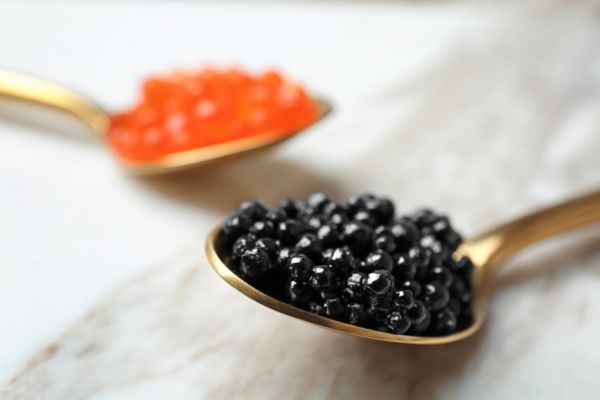Close to half of the commercial caviar products from Europe are unlawful, while some do not contain any trace of sturgeon, a study of samples conducted by researchers showed.
The findings, part of the study titled Poaching and illegal trade of Danube sturgeons, was recently published in the journal Current Biology.
Wild caviar, an expensive delicacy made from sturgeon eggs, has been illegal for decades since poaching brought the fish to the brink of extinction.
Currently, legal and internationally tradeable caviar in Europe can only be sourced from farmed sturgeon.
As part of the study, researchers conducted genetic and isotope analyses on caviar samples from Bulgaria, Romania, Serbia, and Ukraine. These nations border the remaining wild sturgeon populations in Europe.
'Poaching Undermines Conservation Efforts'
According to the researchers, led by Arne Ludwig of the Leibniz-Institute for Zoo & Wildlife Research, "The conservation status of the Danube sturgeon populations renders each individual important for their survival, and the observed intensity of poaching undermines any conservation effort."
The four remaining sturgeon species capable of producing caviar in Europe include Beluga, Russian, stellate, and sterlet.
The last remaining wild populations of these species in the European Union can be found in the Danube River and the Black Sea, according to the report.
Each species has been protected since 1998 under CITES, the Convention on International Trade in Endangered Species of Wild Fauna and Flora.
In 2000, their CITES listing was accompanied by a strict, international labelling system for all caviar products designed to stop illegal trade.
The Study
The researchers bought caviar, both online and in person, from a various sources, including local markets, shops, restaurants, bars, and aquaculture facilities, as well as five samples seized by authorities.
In total, they collected and analysed 149 samples of caviar and sturgeon meat.
Analysis showed that 21% of the samples came from wild-caught sturgeons and that these wild-caught fish were sold in all the countries included in the study.
Data showed that 29% of the samples violated CITES regulations and trade laws, including caviar that listed the wrong species of sturgeon or the wrong country of origin.
Another 32% of the samples was categorised as 'customer deception', including samples declared as wild products that actually originated from aquaculture.
The study also found that sturgeon was replaced with European catfish and Nile perch in Romania in a dish called 'sturgeon soup'.
Demand For Wild Sturgeon
“Our results indicate an ongoing demand for wild sturgeon products, which is alarming, since these products endanger wild sturgeon populations,” the researchers stated.
“The persistent demand fuels poaching and indicates that consumers do not fully accept aquaculture products as a substitute. In addition, caviar being sold in violation of CITES and EU obligations questions the effectiveness of controls in general and the labelling system in particular."
The authors of the study also suggested that the large volume of illegal poaching activity could be an indicator that local seafood vendors are lacking adequate income opportunities, which might increase the pressure to engage in illegal fishing activity.
They also highlighted that there is likely a lack of effective law enforcement in these regions, either because stopping illegal poaching isn’t a priority for local authorities or because they don’t have the tools to prove a fish’s illegal origin.














